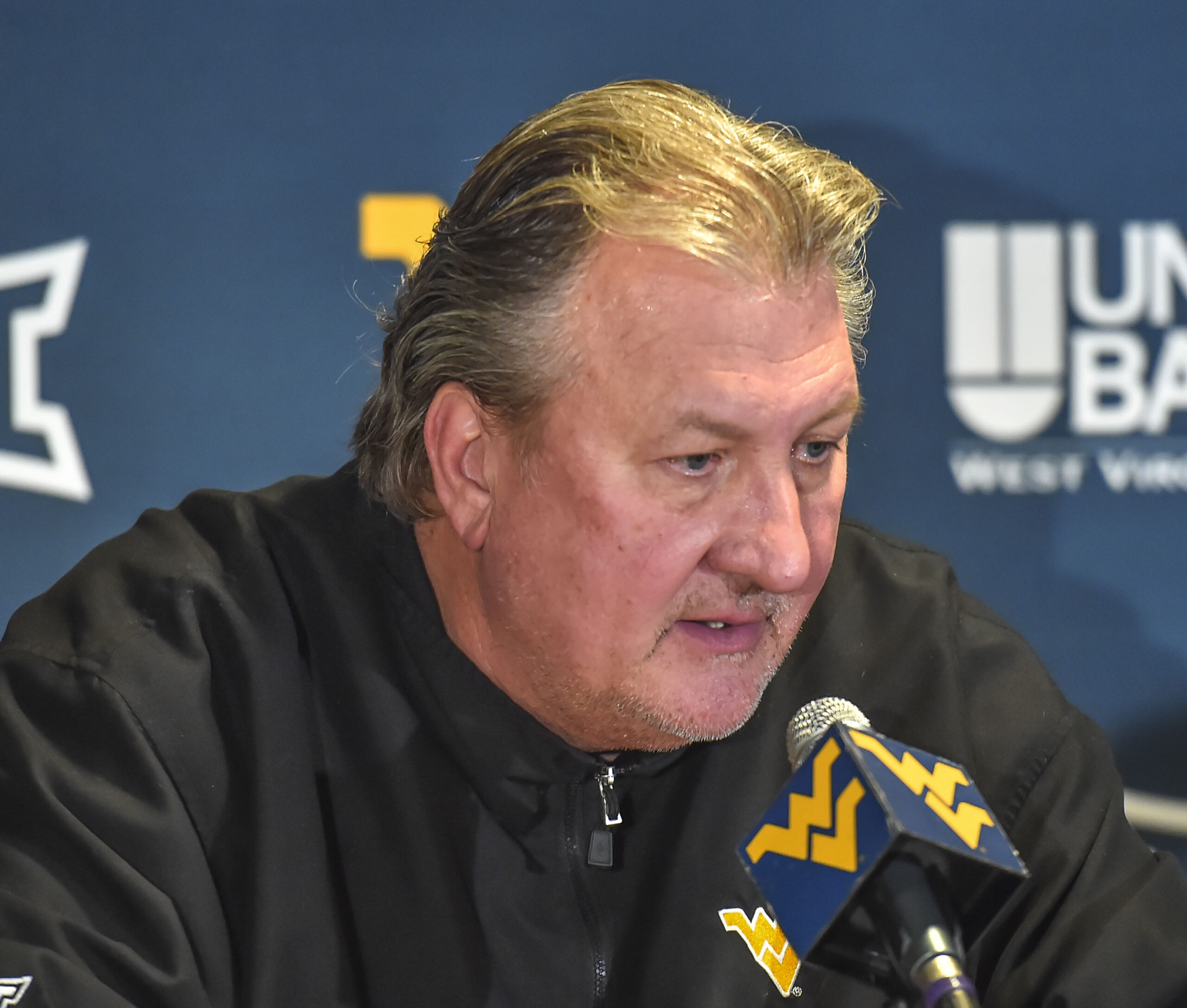MORGANTOWN — In a second round of letters between Ohio-based attorney David A. Campbell and WVU Vice President and General Counsel Stephanie Taylor, both sides laid out their arguments for and against the reinstatement of Bob Huggins as WVU’s head men’s basketball coach.
Campbell, a lawyer for the firm Lewis, Brisbois, Bisgaard & Smith LLP, originally sent a letter to WVU President E. Gordon Gee last week asking the school to reinstate Huggins or face possible litigation.
WVU responded — through Taylor — that the school would not reinstate Huggins.
Campbell’s response, dated July 9, again makes the claim that Huggins did not officially resign and the statement the school released on June 17 that the university said was a public statement from Huggins announcing his resignation was false.
Huggins made the same claims in a public statement he released Monday.
Campbell points out that Huggins’ resignation “letter” was an email sent from his wife’s account to Steve Uryasz, an assistant athletic director at WVU, and, “It is quite obvious that WVU was fully aware that an email to Steve Uryasz was not effective notice under the Employment Agreement.”
Campbell also contends that a simple email confirming Huggins’ resignation is not sufficient enough to meet the requirements set forth in Huggins’ contract.
Section XIV of Huggins’ contract states: “Any and all notices required or permitted to be given under this Agreement will be sufficient if furnished in writing and sent by registered or certified mail.”
Taylor’s response, dated July 10, in part laid out 10 specific points refuting Campbell’s claim and clearly told a story of why WVU believed Huggins had officially resigned.
Taylor begins by stating that Morgantown attorney James “Rocky” Gianola, who had represented Huggins during contract negotiations with the university, had conveyed through numerous text messages and phone conversations that Huggins had decided to resign and retire on June 17, a day after the Hall-of-Fame coach was arrested and charged with a DUI in Pittsburgh.
Taylor said the school needed Huggins’ resignation in writing and, “Mr. Gianola specifically asked the University if it would accept Mr. Huggins’ resignation via an email sent by his wife, June Huggins, because (1) Mr. Huggins does not use email, and (2) Mr. Gianola was having IT issues at his firm and could not access his email reliably.
“In an effort to accommodate Mr. Huggins, the University agreed to accept the notification from Mrs. Huggins’ email account and to send language we would find acceptable.”
Taylor’s letter also claims Huggins — prior to the email being sent on June 17 — called and spoke to Uryasz “for approximately 8 minutes,” and personally confirmed he had resigned.
Through conversations with other WVU officials, Uryasz indicated he and Huggins had talked about possible successors. Uryasz informed Huggins the school was thinking about naming Josh Eilert as the interim coach.
Eilert was named WVU’s interim coach on June 24.
Huggins again called Uryasz following the sending of the email and, “Mr. Huggins did not at that time indicate he had changed his mind about resigning or that the email notification was sent without his authorization,” according to Taylor’s letter.
According to Taylor, Huggins arrived at the basketball practice facility at 10:30 a.m. on June 18 and began cleaning out his office. He also had a brief conversation with WVU athletic director Wren Baker, in which the two discussed his resignation.
“At no point during this conversation did Mr. Huggins express to Mr. Baker that he did not, in fact, resign and retire,” Taylor’s letter read.
Taylor also states WVU’s position as to what Section XIV of Huggins’ contract means, which was a clear contradiction to Campbell’s interpretation.
“Your reading and analysis of the Employment Agreement and the notice provision is also without merit,” Taylor began. “The plain text of this notice provision merely indicates that notices provided in writing and sent by registered or certified mail will be sufficient.
“The language does not say that other notices are void, i.e., the language does not say: ‘All parties must provide notice under this Agreement in a writing sent by registered or certified mail to the other party and any notice not provided in such manner is void.’”
Taylor continued, “In other words, to the extent you are suggesting that the resignation of Mr. Huggins did not strictly and technically comply with the provisions of the Employment Agreement, WVU nonetheless has accepted his unequivocal resignation, and WVU has not and is not requiring a different form of notice under the Employment Agreement,” the letter said. “We accepted his resignation in the form requested by counsel to Mr. Huggins. There is no support in the law or on these facts to suggest that Mr. Huggins may now ignore his resignation and his actions upon which all have relied, undo his voluntary separation, and return to work as if none of this ever occurred.”
Campbell’s letter requested a meeting to further discuss the disagreements and to find an “amicable resolution.”
Taylor responded, “I am certainly willing to have a conversation with you, as I have previously done with Mr. Huggins’ other lawyers. But let me again restate the obvious: the University will not accept Mr. Huggins’ attempted revocation of his resignation, nor will it reinstate him as head coach of the men’s basketball program.
“That said, please provide in writing a detailed version of your proposal for an ‘amicable resolution’ before we schedule a call.”
TWEET @bigjax3211




